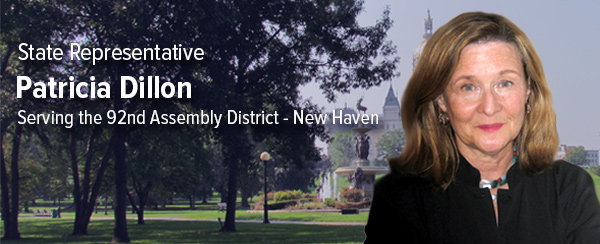
February 26, 2005
WHO SPENT WHAT AND WHERE?
Bill's Aim: Foundations For Public Colleges
By Christopher Keating, Capitol Bureau Chief
Calling for more openness, state legislators are seeking a public audit and increased disclosure at the private University of Connecticut Foundation, whose funds have soared in recent years to about $300 million.
The private, nonprofit foundation has grown sharply since 1995, paralleling the success of the university's men's and women's championship basketball teams. As a result of its increase in size, some lawmakers believe the foundation - and all similar foundations in Connecticut's public higher education system - deserve increased scrutiny.
"They're raising money in the name of the state, and for the past six years, they've gotten a state match, so there's public money in there," said Rep. Patricia Dillon, D-New Haven, the bill's author. "They're using our brand. There has to be some disclosure. They're raising money in our name."
A lawmaker with 20 years of experience at the state Capitol, Dillon believed the disclosure bill would be a sleepy, noncontroversial, good-government issue. But she has run into a buzz saw of opposition from Connecticut State University President William J. Cibes, whose institution has a $33 million foundation, and from UConn.
During a recent public hearing, Cibes submitted detailed testimony that strongly opposed the bill as an unnecessary intrusion that would hurt fund-raising. He stressed that the foundations are not state agencies, but instead are 501(c)3 nonprofit entities.
"The foundations were set up this way to ensure donor confidentiality," Cibes said. "Major donors especially entrust the foundations with extremely sensitive information about personal assets and estate plans. Donors have legitimate concerns about exposing this information to the public, which could occur if the state were to require audits of the foundations by the auditors of public accounts."
But Dillon said she has no desire to see the names of donors. Instead, she wants to know how much is raised and where the money is being spent.
For example, the foundation recently contributed to a $1 million makeover of the UConn president's house, which included a new kitchen with granite countertops and a new slate roof that cost more than $33,000. The Courant obtained details about the project after submitting a freedom of information request.
Without disclosure, Dillon said, state legislators won't be informed about how the money is being spent.
"We wouldn't have known if they spent 5 cents on the house," Dillon said.
The foundation previously came under scrutiny in 1997 after The Courant disclosed extensive travel payments and the purchase of $35 pitchers of orange juice for the men's basketball team at a posh New York City hotel.
At UConn, officials said that state law already calls for an annual, independent audit of the foundation. That audit, by law, must be submitted to the state's auditor of public accounts, said Alvin Wilson, the university's director of government relations. If there are concerns about the independent audit, the state auditors already have the right to conduct their own audit, Wilson said.
"They have access to our audit reports," Wilson said Friday.
UConn is also concerned that the bill calls for the board members of the foundations to make filing disclosures to the State Ethics Commission.
"We understand that such requirements are imposed on elected officials and employees of public and quasi-public agencies in order to disclose potential conflicts of interest," said John K. Martin, the foundation's president.
But the additional requirements "would impede the ability of foundations to secure contributions and attract and retain highly skilled and qualified members to provide leadership and substantial philanthropic support," Martin said in a statement to the legislature's higher education and employment advancement committee.
UConn reports that the foundation had $252.4 million as of June 30, 2004, and the governor's budget office says the assets have increased to $298 million.
The disclosure bill had an unusual genesis from one of the most veteran members of the House Democratic caucus. For years, Dillon worked long hours as a subcommittee co-chair on the powerful appropriations committee. But the new speaker, James Amann, stripped her of that position after she supported fellow New Haven Democrat William R. Dyson for the speaker's job.
With extra time on her hands, Dillon researched the foundation issue and submitted the bill. UConn officials, Dillon said, now believe it would be better for her to return to the appropriations committee because she has been "running loose" on legislation.
Even with her experience at the Capitol, Dillon said, she was surprised at the lobbying against her one-sentence bill.
"I thought this was the easiest bill," Dillon said. "I should have known better."
As the sole sponsor, Dillon was waging a lonely cause against one of the state's most influential institutions at the Capitol, where many legislators are UConn graduates.
But now one of the legislature's most influential members, Senate Majority Leader Martin Looney, has signed up to be a co-sponsor of his fellow New Haven resident's bill.
"I think we need to make sure there is a high degree of public confidence in the foundations," Looney said Friday. "Ten years ago, there was not a lot of funding flowing into these organizations. It has grown enormously from where it was a decade ago."
The UConn president's mansion renovation, Looney said, "is the kind of expenditure that there should be more disclosure and review of before it happens."
Copyright 2005, Hartford Courant